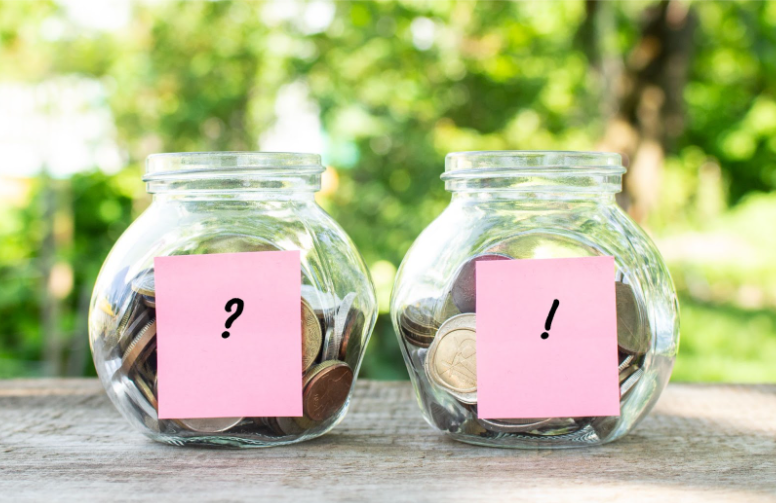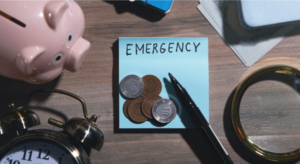
Which Should I Pay First: Debt or Emergency Fund?
It might be difficult to know how to handle many financial goals at the same time, especially if those goals are crucial to strengthening your finances. Therefore, it should come as no surprise that one of the most frequently asked questions is whether one should give priority to paying off debt or saving for an emergency fund. Your specific position will determine how you prioritize those goals, but there are some basic factors to bear in mind. These factors will be discussed in this blog.
What is an Emergency Fund?
An emergency fund is money set aside to cover unforeseen expenses such as a medical or dental bill, car repair, trip to the vet, time of unemployment, and so on. In general, it’s a good idea to keep your emergency fund in a separate account from your bank account and any funds you’re setting aside for other purposes. By doing this, you’ll be less likely to use it for things that are not emergencies.
Which Should I Pay First: Debt or Emergency Funds?
Answer these three questions to help you decide whether you should start by paying off debt or creating an emergency fund.
1. How much do you currently have saved up for emergencies?

If you are starting from scratch, your goal should be to save one month’s worth of living expenses. You should have some wiggle room and enough money to cover a small emergency with that amount. While you’re working your way up to one month, keep making the minimum payments on your debt. Imagine that you start paying down your debt quickly, but you have no emergency funds set aside. How will you cover costs if an emergency arises? You don’t want an emergency to increase your debt burden and weaken your motivation to pay it off. So it’s important you have an emergency fund set aside.
2. What are your debt’s interest rates?
Your interest rates affect how expensive your debt is. When deciding how to order your financial goals, they should be one of your top priorities. Your debt can accumulate quickly due to double-digit interest rates on credit cards as well as some personal loans. These debts are regarded as “bad debts,” and they tend to be stressful. Interest rates are increasing in line with inflation, which has an effect on borrowing costs. Therefore, if you have high-interest debt, you may need to prioritize paying it off once you’ve saved up a decent emergency fund. If your debts are mostly “good debts,” such as a mortgage or student loans, the interest rates are likely to be substantially lower. In this situation, it may be prudent to prioritize emergency funds before embarking on an aggressive debt repayment plan.
3. Do you have any other financial goals?

Even though putting money aside for emergencies and paying off debt are both wise financial decisions, they are likely not going to be your only priorities. In reality, the majority of us juggle multiple financial goals at once, including retirement savings, housing down payment savings, and so on. It’s important to make sure that you aren’t overly concentrating on one of your financial goals at the expense of another. Having several objectives at once is acceptable. Just keep in mind that it’s necessary to thoughtfully prioritize your goals in order to stay on track for both your short- and long-term goals.
How to Prioritize Debt and Emergency Fund
1. The Starter Emergency Fund Approach
You can start by setting up a modest emergency fund, perhaps $1,000. This keeps you from going into further debt by providing you with a safety net in case of small emergencies. Once you have this safety net, you can focus all of your efforts and resources on paying off debt. This strategy allows you to aggressively attack your debt while also providing you with the instant gratification of some savings.
2. The Simultaneous Approach
What if you could accomplish both goals simultaneously? You can decide how to allocate your extra money; for instance, you could allocate 30% to savings and 70% to debt repayment. The exact ratio can be adjusted to fit your needs and comfort level. This ensures that both directions are being traveled at a steady pace. It is like having two pots on the stove; while they are both cooking, one may be simmering and the other on high heat.
3. Debt First Approach
It could make more financial sense to pay off high-interest debt as quickly as possible if you have a lot of it. Having debt of this nature costs you money every day; an example is credit card debt. You can then allocate all of your extra money toward creating a sizeable emergency reserve after these are paid off.
You are Not Alone
Consider consulting a debt relief expert at EmpireOne Credit if you’re still confused about whether you should prioritize paying down debt or creating an emergency fund. We can provide strategic guidance, such as which debts you should pay off first or how much of your income you should allocate to each. Your entire financial situation can be improved by first helping you understand your options. We will also help you with debt relief options that can reduce your debt by up to 80%, and interest will stop immediately. Would you like to find out more? Contact us on (416) 900-2324 to get a free consultation. You owe it to yourself to be debt free.





